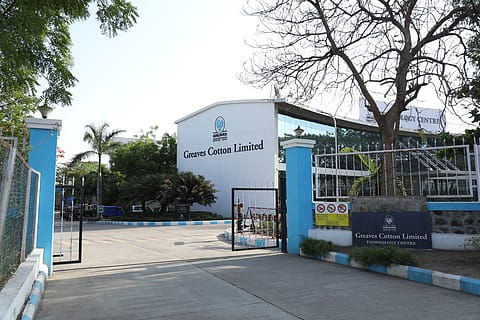Greaves Cotton bets big on India’s electric future
The engines and heavy equipment maker wants to cater to India’s affordable electric mobility needs.

Mumbai-based engines and heavy equipment maker Greaves Cotton is betting big on India’s electric future. The 160-year-old firm, which acquired a 67% stake in Ratan Tata-backed electric vehicle maker Ampere Vehicles for ₹77 crore in August, is working on new two- and three-wheeler electric vehicles.
“It has been just the last couple of months that we announced this, so I think we are already working on certain newer models which will give us some of the higher speed models as well. We will continue to look out for new product additions over the next six months,” says Nagesh A. Basavanhalli, managing director and CEO, Greaves Cotton.
According to the company, it has now aligned its strategy to be ready for a technological, regulatory and business model disruption by 2020. Its recent acquisitions and partnerships with Pinnacle Engines, Atul Auto, Continental Engines, and Ampere Vehicles are all in line with that.
The company says the Ampere acquisition will help the company get access to its battery management system and the charging infrastructure among other things. “We are very keen to bring in responsible technology and cater to the affordable mobility needs of India. We are looking at EVs and believe it is sustainable and the right thing to do for the future,” says Basavanhalli.
He aims to do this by catering to people at the bottom of the pyramid by transforming the area of last-mile connectivity.
According to a report by ICICI Direct, the company is expected to clock ₹1,943 crore in revenue. Basavanhalli believes it will happen on the back of strong growth in the electric mobility segment. To achieve that Greaves Cotton wants to follow an “and+and” strategy. “We have been in a journey of transformation—from being predominantly a diesel engine company several years ago to diesel, petrol, clean CNG and clean EV. So, we want to have the technology and solutions for customers across all the fuel mixes,” Basavanhalli explains.
The company is looking at fast-charging EV infrastructure, swappable batteries, lithium chargers, and EV kits. EV kits will work like a replacement kit wherein traditional fuel-based two- and three-wheelers will be able to use a retrofit solution to turn their vehicles into electric. The technology is still in nascent stage.
Recommended Stories
Basavanhalli expects the government to spell out the EV policy soon so that solution providers like him can work on a clear directive. “The subsidy of the FAME policy has not been clearly spelt out, so we would like to see that clarity brought in over a period of time. As a responsible private partner, we are going to do what we can through our network to start setting up infrastructure as the popularisation of EV’s will happen when the infrastructure is available,” he said.
In the near to short term, the company is also looking at exploring new opportunities internationally, especially across Asean countries and Africa.